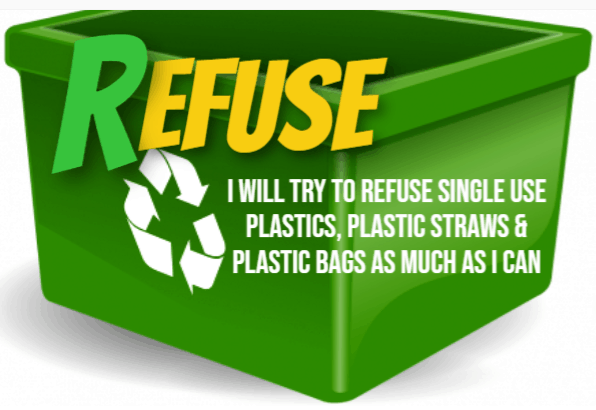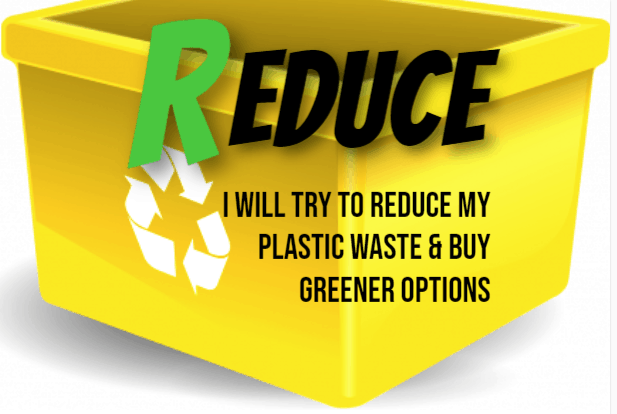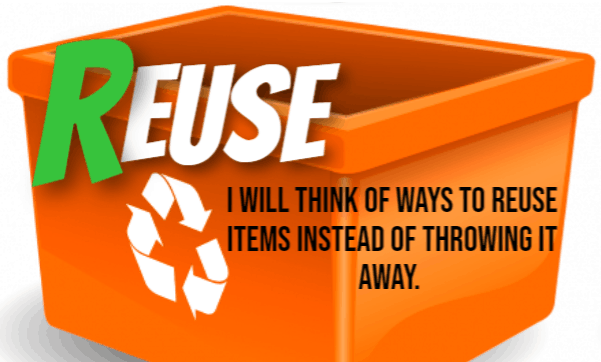In order to educate our people in the community on how to minimize waste, Infrastructure Cook Islands uses the “4R’s” which are: REFUSE, REDUCE, REUSE & RECYCLE. The 4R’s are organised in order of importance. The first goal is to minimise the amount of waste we generate in the first place. If we consume or accumulate less and are careful about packaging, we generate less waste. To help you understand the 4R’s, read on below.
REFUSE, simply means to say NO.
This is the first step. Refusing materials is the primary way to lower our impact on the landfill. Try to refuse single use plastics – packaging, bags and straws – take alternatives with you.
Here are some ways you can do this:
- Carry a reusable bag in your car and/or bag
- Carry a water bottle and hot drink reusable cup and a jar for cold drinks
- Avoid unnecessary product packaging and request reusable or returnable containers
- Make smarter purchasing decisions.

Non-recyclable items are waste products that cannot be recycled. Some examples are: food storage containers, dishware, vinyl, foam materials, window glass, mirrors, light bulbs, whiteware eg. fridges, or car parts.
What is a Non-Recyclable Product?
REDUCE, means to use less and NOT waste.
This is the second step. Reduce the use of harmful, wasteful, and non-recyclable products. Reduction of single-use products can result in less waste materials ending up in landfill. Use the minimum amount required.
Here are some examples of reducing materials:
- Ensure printed documents are double-sided.
- Buy sturdy cloth or recyclable bags that can be reused.
- Buy a larger container instead of two smaller ones.
- Buy products that do more than one thing—for example, 2 in 1 shampoo and conditioner.
- Buy concentrated products or compact packages, such as juices, fabric softeners, and cleaners you can mix with water at home.
- Look for products with minimal packaging- so that you will have less to throw away.

Composting is the recycling of leftovers like food scraps, grass and leaves, that when mixed into soil provides optimal nutrients to help plants grow. Learn how to compost at home, click here for some helpful tips.
What is Composting?
REUSE or REPURPOSE, means to reuse existing products or materials instead of throwing them away
This is the third step. In an effort to reduce waste, reuse items instead of buying new ones. For every item that can’t be refused, reduced, try reusing or repurposing it. Repurposing is taking something previously created and transforming it, or a section of it, into something completely different.
Here are some examples of reusing or repurposing materials:
- Pass on magazines, catalogs, and books to neighbors, hospitals, libraries, schools or other local organisations.
- Use tin cans or tyres for potting new plants
- Reuse plastic or glass containers for storage of food or other household items.
- Reuse glass jars as drinking glasses.
- Reuse shopping bags and sturdy cardboard boxes for storage.
- Reuse wrapping paper, newspapers, gift bags, and bows for future gifts.

RECYCLE is simply “to use something again”.
Last but not least is RECYCLE. Separating at home and work is one of the most significant steps to improving efficiencies at waste facilities and therefore reducing the cost of waste management. In the Cook Islands, ICI has a waste collection contractor that collects household recycling items and general rubbish throughout the week. ICI encourages everyone to place your recyclables in labeled containers for pickup. While recycling is great in a lot of ways, the ultimate goal is to get people to prevent waste in the first place. Refuse, Reduce and Reuse before you Recycle.
Here are some reasons why recycling should be upheld:
- Recycling saves landfill space.
- Separating your recyclables from your general waste improves efficiencies at waste facilities which in turns reduces the cost of waste management.
- Recycling benefits the environment and has a positive effect on the economy.
- Recycled products can be lucrative – turn your rubbish into your next business venture.

